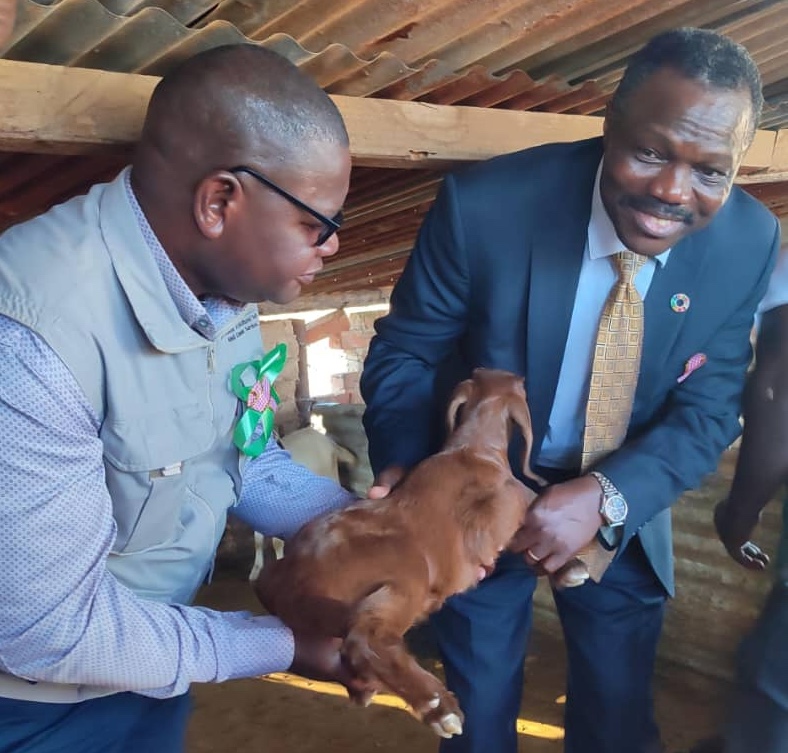By Ndumiso Tshuma
Esigodini Agricultural College is set to offer free training to the surrounding communities on dairy and goat production following a donation of livestock and laboratory equipment from the United Nations Development Programme (UNDP).
The donation included over 54 Matabele and Kalahari breeding goats, feed analysis and laboratory equipment, all worth over US$80 000.
Speaking at the handover ceremony on Tuesday, Ministry of Lands, Agriculture Fisheries Water and Rural Development Department of Agricultural Education permanent secretary Obert Jiri stated that the partnership between UNDP Zimbabwe and the Government of Zimbabwe will enrich the learning experience for students in the college and the surrounding communities.
“These animals will be a valuable addition to the college livestock unit which is an integral part of the new training curriculum. The dairy animals will be used to provide hands-on training in dairy husbandry, milk production and processing, while the goats will be used for research and innovation in small-scale livestock. This will also enhance the sustainability of the institution by generating income through the sale of milk, meat and other products,” said Jiri.
He further stated that providing extension and advisory services through the Innovation Platform will help outreach education on the production of goats and milk to the surrounding communities.
He added that this will empower students to become agents of change within their communities bridging the gap between academia and real-world application.
“Increasing the college dairy herd from the donation does not only contribute to the revitalization of the agricultural sector but also drives economic growth and resilience within our community”, said Jiri.
Jiri said that in July 2021 the Ministry launched a new curriculum, Agricultural Education for Development, which emphasised five key pillars such as training, extension, business advisory services, research, innovation and entrepreneurship to create employment and attain agricultural blueprints throughout the country.
“This enables development of a whole person capable of creating employment for self and others, at the time contributing to the attainment of national agricultural blueprints and vision 2030,” said Jiri.

